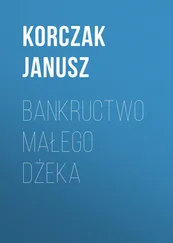“I was yanked back to Moscow,” he said, “for school.”
He explained that there was still time for another revolution, at a future opportunity when it would be more likely to succeed. He had heard some bad news, that after being thrown into Boven-Digoel some communists had surrendered and chosen to collaborate with the colonial government. Those who persisted in their beliefs were exiled even farther, to places where malaria could kill them without mercy.
He stood up because he had to go to the toilet, and Kliwon rushed to wrap the man’s body with a sarong, saying, “My mother will scream to high heaven if she sees you walking throughout the house stark naked.”
Even though he let his body be covered, Comrade Salim retorted, “What’s the difference, tomorrow she’s going to see me stark naked and dead.”
They continued their chat, now out on the verandah, with Comrade Salim still wearing only a sarong. From where they sat they could see the expanse of dark ocean flecked with lights from the fishermen’s lanterns, and they could hear the sound of the peacefully pounding waves. The kid asked what the communists were looking for and Comrade Salim replied, “Heaven.” At the stroke of midnight, they saw a truck pass by, filled with KNIL soldiers, but the soldiers didn’t see the pair sitting on the unlit veranda.
“The world is changing,” said Comrade Salim. For hundreds of years, more than half of the face of this earth has been controlled by European countries and turned into colonies, and the Europeans have sucked up whatever they could find, brought it all home, and made themselves rich. But not Germany and Japan; they didn’t get anything. But now they have just as much power as any other developed country, and so they are demanding their share. That is the origin of this war, a war between greedy nations. (Comrade Salim asked if there were any cigarettes, and Kliwon went to fetch his tobacco from his room.) The natives are the most pathetic people, as wretched as can be. After so many years of living under rajas and being lied to by kings, all of a sudden the Europeans came, and they didn’t even understand the excessive and crazy sense of respect that was still alive in the land of Java. Farmers, after they have been forced into labor and forced to hand over most of their harvest to the colonial government, still bow in the street whenever a young Dutch girl is passing by. Communism was born from a beautiful dream, the likes of which there will never be again on the face of this earth: that there would no longer be lazy men who eat their fill while others work hard and starve. Kliwon asked whether revolution was the way to achieve that beautiful dream.
“It’s true,” replied Comrade Salim, “that oppressed people only have one tool of resistance: run amok. And if I have to tell you, revolution is nothing more than a collective running amok, organized by one particular party.”
His only reason for communist rebellion was the fact that the bourgeoisie would never negotiate peacefully. They would never surrender their power without a fight, they would never freely give away their riches, and they certainly would never agree to the loss of their comfortable lifestyle. They did not want to share, because then there would be nobody left to fetch and serve their coffee, nobody left to wash their clothes, nobody left to fix their engines, nobody left to pick their cocoa beans. In the communist world, everyone had the right to be lazy and everyone had the responsibility to work as well. “The bourgeoisie wouldn’t want that, so the only option is to revolt.”
Salim had returned home from abroad a few days before the Independence Day celebration. The republic had stood for three years, but the Dutch were still everywhere. Even more upsetting, the republic had lost in every war and at every negotiation table, so that it only controlled a small area of the interior. He met with the president of the republic, his old friend, who immediately said to him, “Help us fortify this country and launch a revolution.”
“That indeed is my responsibility. Ik kom hier om orde te scheppen ,” he said. I came to get everything in order.
He believed the source of all the chaos ultimately originated from the president of the republic himself, and the vice president, and the officials and the party men. “They sold the people as little more than slaves during the Japanese occupation, now they are selling the territory to the Dutch,” he said. The only group that he still trusted was the Indonesian Communist Party. He was openly received by the party, even though he quickly discovered that the PKI had made some crucial mistakes in the orientation of their struggle. He wanted to redirect it, and they handed over everything to him, this savior who had just come from Moscow. One month after his arrival, revolt finally erupted in Madiun — yes, of course it was the communists. He himself wasn’t there when it started, but then he went to give some moral support. The revolution only lasted a week, and then he became a fugitive.
“So now, here I am, waiting for my grave to be dug.”
“You have already walked a long road,” said Kliwon. “There is still time if you want to escape.”
“I have experienced revolution twice, and both times it failed, and that is enough to make me know what I am worth,” the man said with a bitter sadness. “The time has come for me to die, so I’m sure that even if I do run away again I won’t escape my fate.”
Kliwon didn’t understand this line of reasoning at all.
“But if you die, everything is over.”
Comrade Salim closed his eyes, squinting against the night breeze that brushed across his face. “Now it’s your turn, Comrade.”
Comrade Salim admitted that he was not a good Marxist, that he didn’t understand all that class theory yet, but he was fairly certain that injustice had to be fought in any way possible. There are no Marxists in this country, he said, but there are plenty of starving masses, who work more than what they get for it in return, who have to bend their knees every time a big man appears, who know nothing except that the one way to be free from all of that is to rebel. Think about it, he said, there are thousands of laborers in sugar factories all across the sugarcane plantations. They work for the whole year, while the plantation owners enjoy the comfort of their weekend and vacation homes in the foothills. The laborers only get enough compensation to live payday to payday, while the plantation owners reap their mammoth profits. The same thing happens in the tea plantations. That’s the only reason we need to rebel, and the only Marxist phrase that we need to keep in our hearts is this: Workers of the world, unite!
When the cock’s crow was heard in the distance, their conversation trailed off as if they had begun to smell the odor of death. Comrade Salim was silent in his chair, as if he had died before his time had come. He didn’t sleep, in fact he was fully alert, waiting patiently for his last morning to begin. “Like the pious who believe they will get into heaven, I am a true communist and not afraid to die,” he said in a quiet, almost inaudible voice.
“Do you believe in God?” asked Kliwon tentatively.
“That’s irrelevant,” Salim replied. “It’s not man’s job to think about whether God exists or not, especially when you know that right in front of your eyes one person is stepping on another’s neck.”
“So you are going to hell.”
“I’d rather go to hell, because I have spent my whole life trying to eliminate any man’s superiority over other men.” He continued, “If I might share my opinion, this world is hell, and our task is to create our own heaven.”
His last morning came, and just as Comrade Salim had predicted, a republican squad led by a captain suddenly appeared, coming to execute him. They came quietly, wearing civilian clothes, because Halimunda was in a KNIL-occupied area. The squad surrounded Salim while he was still sitting peacefully with Kliwon on the veranda.
Читать дальше











